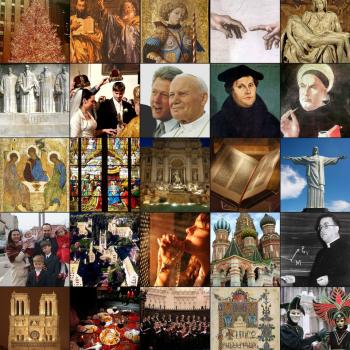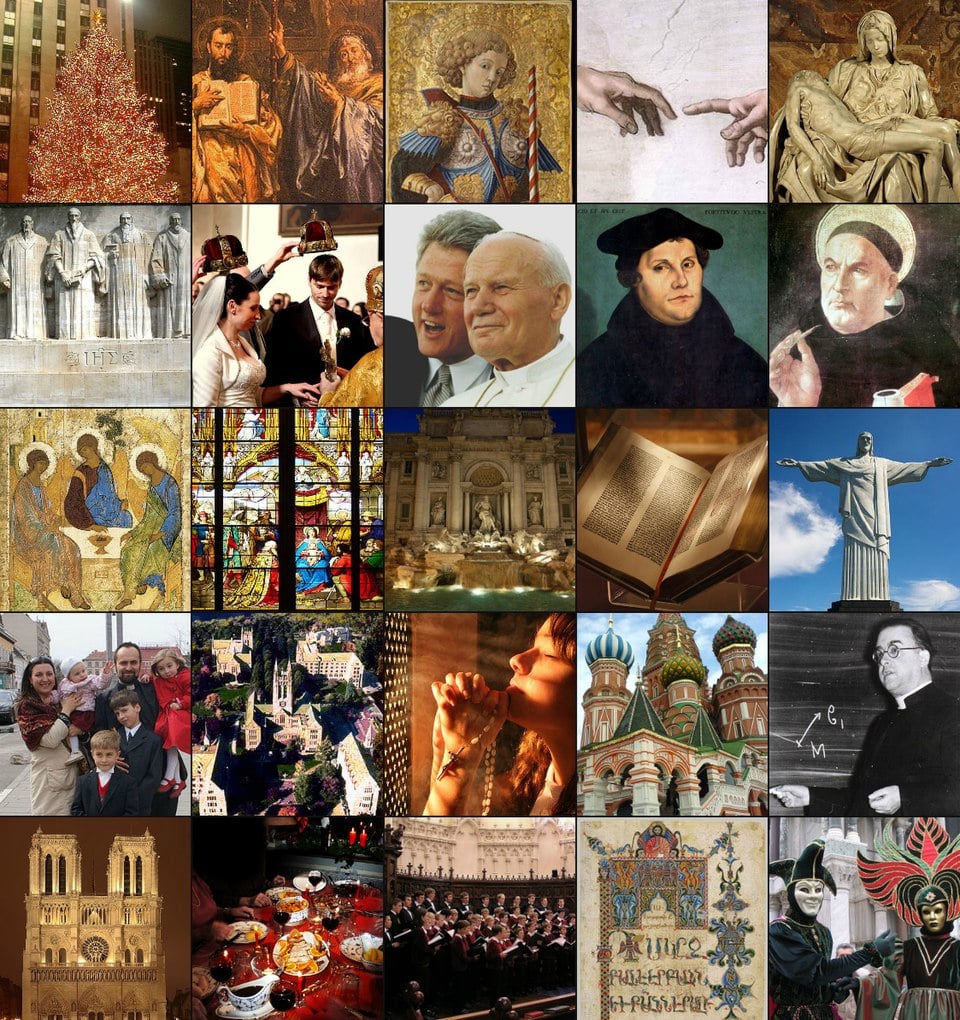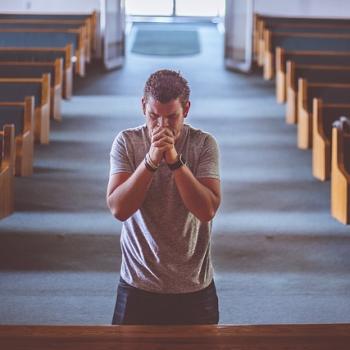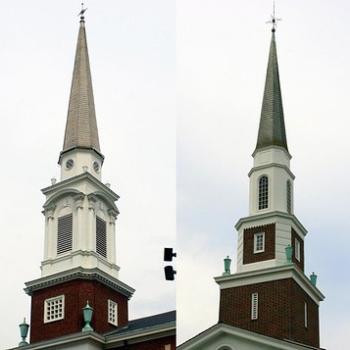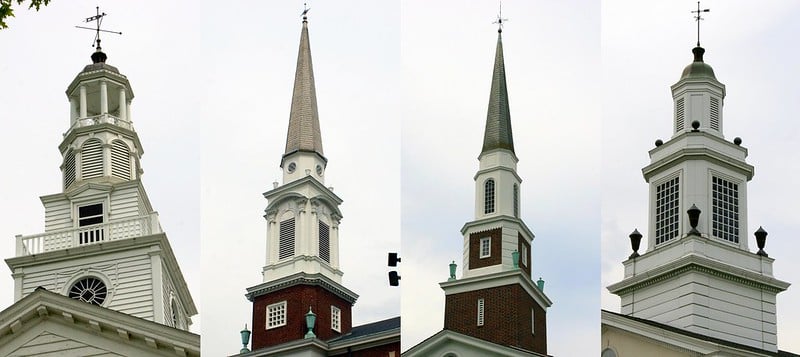Is culture changed primarily from below, by masses of people transforming their thinking and behavior, or from above, as a small number of elites exert their influence over everyone else? Both secularists and Christians have been debating which tactic is the best strategy.
Last week we blogged about Antonio Gramsci, who urged his fellow Communists to switch from trying to mobilize the working class to taking over institutions so as to create a revolution from the top down.
The Left took that advice. Today they dominate our elite institutions–universities, the arts, journalism, the media, to name a few–and their biggest revolutions have been in overthrowing the traditional family (as in the sexual revolution, feminism, homosexuality, same-sex marriage, transgenderism, the raising of children by the state, etc.)
Although Gramsci’s ideas were heretical from the perspective of orthodox Marxism, he did describe how Communism actually worked in practice. In the countries that went Communist, there was no withering away of the state, as Marx predicted. Rather, the countries were ruled by party strongmen who installed an elite corps of nomenklaturato impose state control of all of life.
That the base of today’s Democratic party is no longer the working class, but affluent, university-educated professionals, leaving the working class to the Republicans thus makes perfect sense.
It turns out, a similar debate over tactics has been churning among Christians who would like to change the culture in a more Christian-friendly direction.
I came across an article in First Things by one of my former students who is now a formidable Christian (and Lutheran) thinker, John Ehrett. In his article Colson’s Last Word, Ehrett tells about how a book by James Davison Hunter fell into his hands that belonged to former Nixon-operative turned Christian activist Charles Colson. The book, in which Hunter urged the top-down approach, was filled with marginal notes from Colson, who favored the bottom-up approach, resulting in a kind of debate between them.
Ehrett’s account of that debate and his own contributions to it are worth reading, but I want to make some points of my own. I’ll let Ehrett explain Hunter’s position:
In 2010, James Davison Hunter’s To Change the World landed like a bombshell among Christian intellectuals. It is difficult to do justice to the scale and sophistication of Hunter’s argument, but at bottom To Change the World argued for a new “Christian strategy.”
In Hunter’s telling, the possibility of Christian social transformation had far less to do with “worldview” than with “culture,” a social matrix of values and assumptions that “often seems eerily independent of majority opinion.” That matrix was shaped by influential people “operating in common purpose within institutions at the high-prestige centers of cultural production.” These elites, Hunter argued, tended to form tight networks that exercised creative power in ways unavailable to those outside the inner rings. The decline of Western Christian influence was due to Christians’ “absen[ce] from the arenas in which the greatest influence in the culture is exerted.” (The decline was also, Hunter made clear, linked to the fact that mainstream Christian tastes “run to the lower-middle and middle brow rather than the high brow.”)
Hunter concluded that generations of Christian efforts to shape society through conversion and revival had been fundamentally misguided, because “cultures change from the top down, rarely if ever from the bottom up.”
How did I miss that bombshell? I was vaguely aware of Hunter’s book, but I didn’t read it or follow the controversy. I guess I was too busy as an administrator and teacher at Patrick Henry College. I see now that PHC was working both sides, encouraging the grass-roots popular movement of homeschooling, while giving bright homeschooled kids a powerful classical education that equipped them to blow the top off of law school and other graduate school entrance exams and so break into the nation’s elite institutions. Ehrett, for example, went to law school at Yale. Many other PHC grads now have Ivy League pedigrees. PHC grads can be found scattered throughout the nation’s think tanks, legal systems, and political staffs. One of my students, Gabe Evans, is now a congressman from Colorado.
Let me add another distinction. We can speak of “folk culture,” the culture of the people as a whole. And we can speak of the “high culture,” the realm of unique individual achievement. Folk culture is about traditions, customs, and assumptions. It is innately conservative, which is why Gramsci gave up on it. High culture comes from a civilization’s artists, thinkers, scientists, inventors, and other elite creators. These denizens of the high culture are often at odds with the unwashed masses of the folk culture, criticizing them and bringing new ideas that the people don’t approve of.
The conflict between the two makes for a dynamic civilization. Sometimes the high culture of the elite class does indeed influence the masses, as in the sexual revolution, often to their harm. Sometimes the folk culture influences the elite, as in the Romantic movement of the 19th century. Sometimes, though, they work together, as in the American revolution.
Where does Christianity come into this? As Colson points out, Christianity took root in the Roman Empire as a popular movement, but then when the Emperor Constantine was converted, it took hold among the elite. As Colson also points out, the Reformation was a popular movement, though it needed the Protestant princes to protect it. Throughout Western civilization, up until the last few centuries, Christianity played an important role in the high culture, with its artists, musicians, theologians, writers, and thinkers. Today, Christianity is still plays an important role in our folk culture–what with the churches, the holidays, and many of the values held even by non-believers. While the high culture, with some significant exceptions, has largely turned against Christianity.
That last point, as Ehrett also says, poses a problem for Christians wanting to pursue Hunter’s strategy. It’s hard for a Christian to break into an elite circle, such as the dominant art scene, if it actively excludes not just Christians but any religious expression. It’s possible, but it often requires Christians to keep quiet about their beliefs, which defeats the purpose of Christian cultural change.
When I was at Concordia University Wisconsin, the Cranach Institute sponsored a symposium on H. Richard Niebuhr’s Christ and Culture, which examined the various historical possibilities of that relationship: Culture over Christ; Christ over culture; Christ transforming culture; Christ against culture; and Christ and culture in paradox.
My friend Wayne Martindale, a professor from Wheaton who had spent time in China, said that Niebuhr left out the possibility that was most pertinent for Christians in China and is increasingly pertinent for Christians in the West: Culture against Christ.
We naively assume that we can just pick a position, but when the culture, whether high or low, actively opposes Christianity we do not have the luxury of a choice. Being faithful and living the Christian life in a culture that hates you, even persecutes you, is a different kind of challenge.
To be sure, some elite professions are easier to infiltrate than others and Christians pop up in surprising places.
When Christians find themselves excluded from some professions because of their faith, one alternative is the parallel Christian institutions that have come into existence. For example, there are many Christian colleges and universities that can keep the Christian intellectual tradition alive. Though these might sometimes be tempted to conform to their secularist counterparts, on the whole they can be a haven for Christian academics and students. (That’s the route I chose.)
Christians’ main goal, though, should not be changing the culture, as such, but saving souls. There are still Christian churches, Christian families, Christian art, Christian music, Christian authors, Christian scholars, both from today and from our past. Learning our Christian heritage can give us a cultural and civilizational grounding that can get us through many of the conflicts we find today. So can the doctrine of vocation, which shows Christians how they can pursue even secular-seeming callings in love and service to their neighbors, and so be salt and light wherever God places them.
And vocation answers the question of how to change a culture. If you are displeased with the current society and want to make it better, start where you are: in your own life, your own family, your own workplace, your own church, your own community. Maybe you do have a vocation of major influence, but, if not, you can influence the people around you in the estates to which God has called you. And that’s usually the most significant.
Culture is people, and the goal of the culture-shaping elites is to shape and usually control “the people.” But we don’t have to let them. Our task first is be the people God wants us to be. As St. Peter reminds us, “Once you were not a people, but now you are God’s people” (1 Peter 2:10).
Illustration: Collage Christian Culture by User:jobas – self-made fromOther photosThe lecturing priest is scientific Georges Lemaître, CC BY-SA 3.0, https://commons.wikimedia.org/w/index.php?curid=31465391


